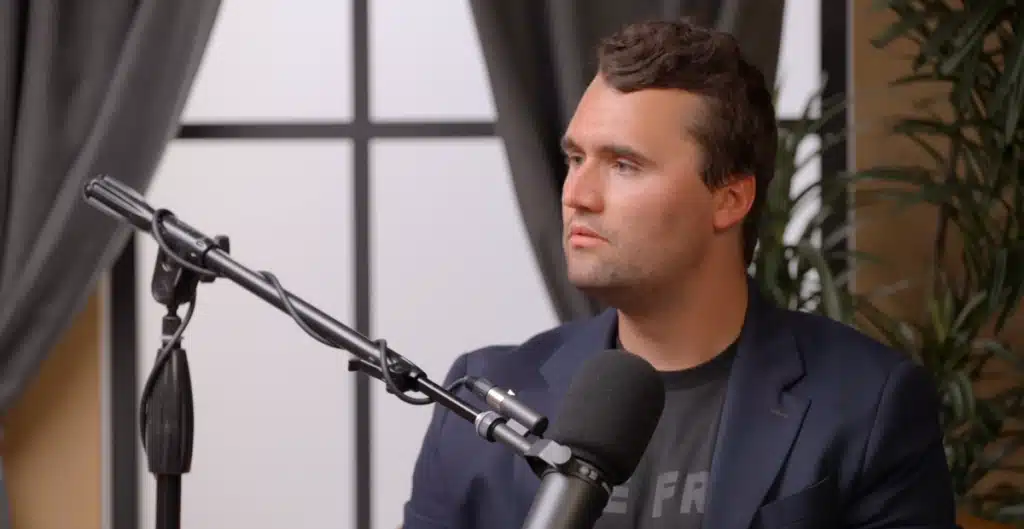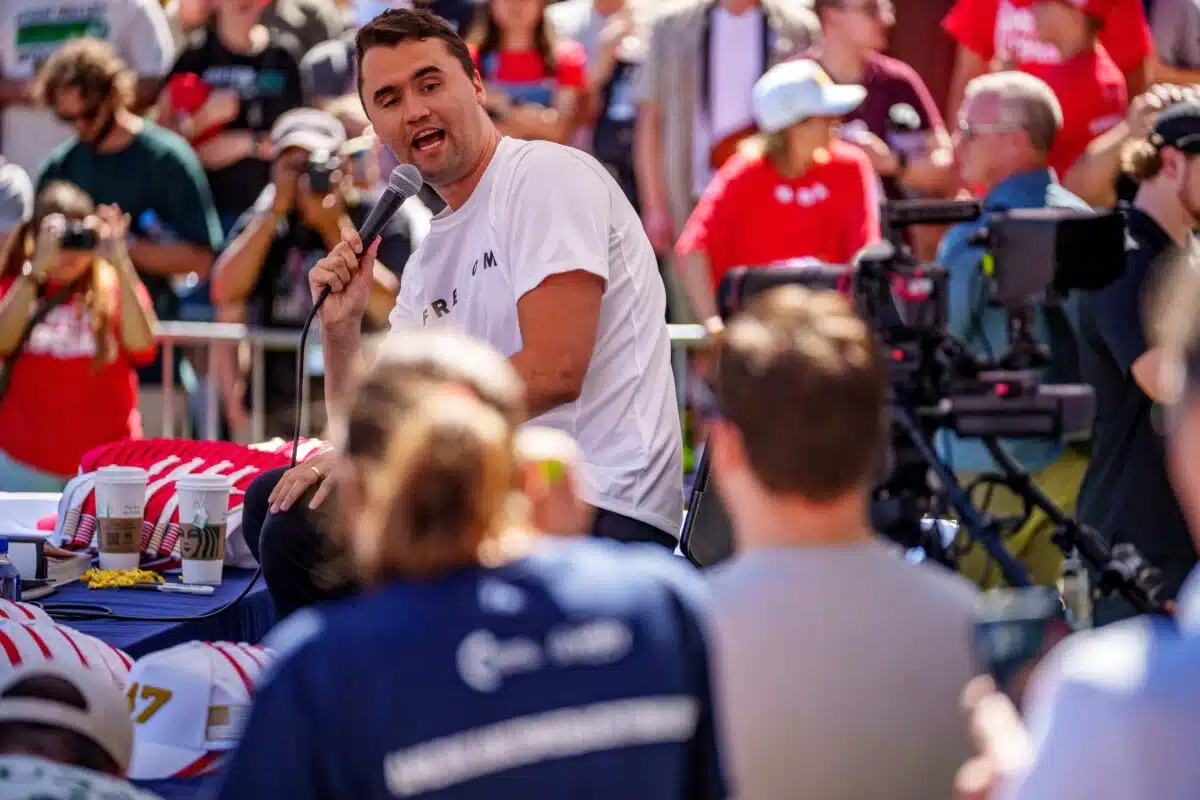In one of his final interviews, conservative activist Charlie Kirk revealed what mattered most to him — and how he hoped to be remembered.
Kirk had become one of the most prominent and influential conservative voices of his generation. At just 18, fresh out of high school in 2012, he decided to skip college and dedicate himself fully to political activism.
That same year, he partnered with Bill Montgomery to launch Turning Point USA, a nonprofit aimed at “identifying, educating, training, and organizing students to promote freedom.” What began as a grassroots project quickly grew into a national movement, reaching thousands of students on college campuses across the country.
Beyond the organization, Kirk built a wide following through his radio program, frequent appearances on podcasts and talk shows, and his headline-grabbing campus tours. These tours featured his trademark “prove me wrong” tables, where students and audience members were invited to debate him directly — a format that became central to his reputation as the face of young conservatism.
That work was cut short on September 10, 2025, during a stop on his American Comeback Tour at Utah Valley University. In the middle of a “prove me wrong” session, Kirk was fatally shot in what officials are calling a political assassination. He was 31 years old.
Just weeks earlier, however, Kirk had spoken candidly about life, legacy, and faith. Appearing on The Iced Coffee Hour podcast in late June, he was asked how he would want people to remember him if everything were to suddenly disappear.
The question gave him pause. “If I die?” he said, visibly taken aback. The host pressed again: “If you could be associated with one thing, how would you want to be remembered?”
Kirk’s answer was simple and unwavering:
“I want to be remembered for courage for my faith. That would be the most important. The most important thing is my faith in my life.”
For Charlie Kirk, that was the legacy he hoped to leave behind — a life of courage, rooted in faith.

